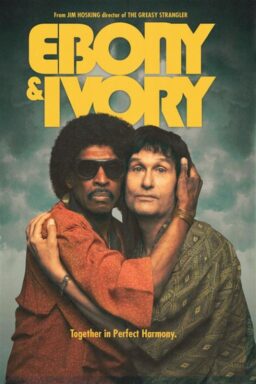1.
“39 Pieces of Advice for Journalists and Writers of Color.” Assembled by Haben Nigatu and Tracey Clayton for BuzzFeed. Great stuff here—for everybody who writes.
“Establish a solid foundation right away. The world is rife with stories of freelance writers making over $100K, but that is hallowed ground and not the norm, particularly when you’re just starting out. DO NOT LET THESE RICH PEOPLE GET YOU DOWN. I’ve been writing for a while but only freelancing for a few months, and the only way I’m able to do this job at all is by lining up regularly paid gigs, like TV recaps. I have writer friends who do technical writing, editing, and copywriting just to ensure they can pay their bills every month. You’re not going to wake up and be Joan Didion —there’s no shame in getting a solid gig that gives you room to write for other publications while you expand your resumé.”
—Danielle Henderson, writer
2.

“Radiohead’s Motion Picture Soundtracks.” Self-explanatory. By David Ehrlich, for The Dissolve.
“Few filmmakers understand the interplay between music and emotion quite like Cameron Crowe. When he kicked off 2001’s Vanilla Sky with Radiohead’s glitchy, ironic, and vaguely dadaist ‘Everything In Its Right Place,’ his use of the song wasn’t instructional so much as it was destabilizing. The film, an ultimately prescriptive but admirably bizarre remake of Alejandro Amenábar’s Open Your Eyes, may have tried to piggyback off of the digital tabula rasa provided by Kid A’s opening track, but an invitation to reset is hardly the same thing as a linear path to feeling. In an interview with Rolling Stone, Crowe explained that he used the song because ‘It’s just rich and multi-layered… like you’ve ripped open the human mind and it’s the thoughts and sounds of what goes on in the psyche. That’s what we wanted Vanilla Sky to feel like. And it’s also fun. I find Radiohead to be fun as well as challenging.’ It’s precisely because the cue challenges viewers, rather than simply pandering to them, that it is so memorable, and imbues the first passages of the movie with a sense of ambition and wonder that the screenplay struggles to sustain.”
3.

“Bombast: Ad Hominem, Ad Nauseum.” For Film Comment, Nick Pinkerton writes about the pleasures and dangers of being unpleasant on the Internet. This is in part a response to a column by RogerEbert.com‘s Glenn Kenny about his own struggles with online tonal control and anger management. Also includes references to National Review film critic Armond White‘s takedown of “Life Itself,” about this site’s founder. Related: Roger’s 2009 blog post referring to White as “a troll.”
“While outright calumny doesn’t do anyone any favors, having one’s failings pointed out certainly can, especially if you happen to be inclined towards Maoist–style self-criticism. And if nothing else, being on the receiving end of an occasional dousing in Haterade or throwing of shade is palpable evidence that people are paying attention to what you’re doing—though it’s not necessarily evidence, as is often assumed, that you’re doing anything right. It is also a reminder, should any be needed beyond one’s own self-regulation, to keep your writing, your facts, and your ideas as tight and orderly as possible, lest any opening be provided for those who wish to see you face-plant.”
4.

“‘Eyes Wide Shut at 15.’ Inside the Epic, Secretive Film Shoot that Pushed Tom Cruise and Nicole Kidman to their Limits.” By Amy Nicholson, for Vanity Fair. Roger’s review is here.
“After all, a director who demands 95 takes could be exacting—or conversely, he could be ill-prepared and uncommunicative. Cruise’s overpreparation had served him well in the past. Not here. He got an ulcer, and tried to keep the news from Kubrick. At its core, the Cruise/Kubrick combination seems cruel: an over-achieving actor desperate to please a never-satisfied auteur. The power balance was firmly shifted to Kubrick, yet to his credit, Cruise has never complained.”
5.

“Robert Bresson’s ‘Pickpocket’ Hits Criterion: An Early Example of the Crime Art Film.” For The Film Stage, Peter Labuza writes about the 1959 classic, now on Criterion Blu-ray. Roger’s review of ‘Pickpocket’ is here.
“Pickpocket is a film made from material gestures, not that far from what is experienced during a Buster Keaton stunt — using artificial means and making action feel physical, and if you can do so with minimum effort, the better. Keaton may have relied widescreen and unbroken takes for his stunts, there is a line in James Agee’s iconic piece that jumps out in terms of thinking about Bresson: “In a way his pictures are like a transcendent juggling act in which it seems that the whole universe is in exquisite flying motion and the one point of repose is the juggler’s effortless, uninterested face.”
Image of the Day

Jordan J. Teicher’s Slate photography column “A New Way to Talk About Poverty in Troy, NY” showcased Brenda Ann Kenneally’s photos of families in upstate New York living below the poverty line. The comments on the Slate piece were toxically hateful. For an analysis, read Anna Altman’s New York Times blog piece “When Struggling Families Spark Internet Rage.”
Video of the Day
“Spike Lee Edits Footage of Black Man’s Death at Hands of Staten Island Police with Radio Raheem Scene from ‘Do the Right Thing.” From Shadow and Act.












